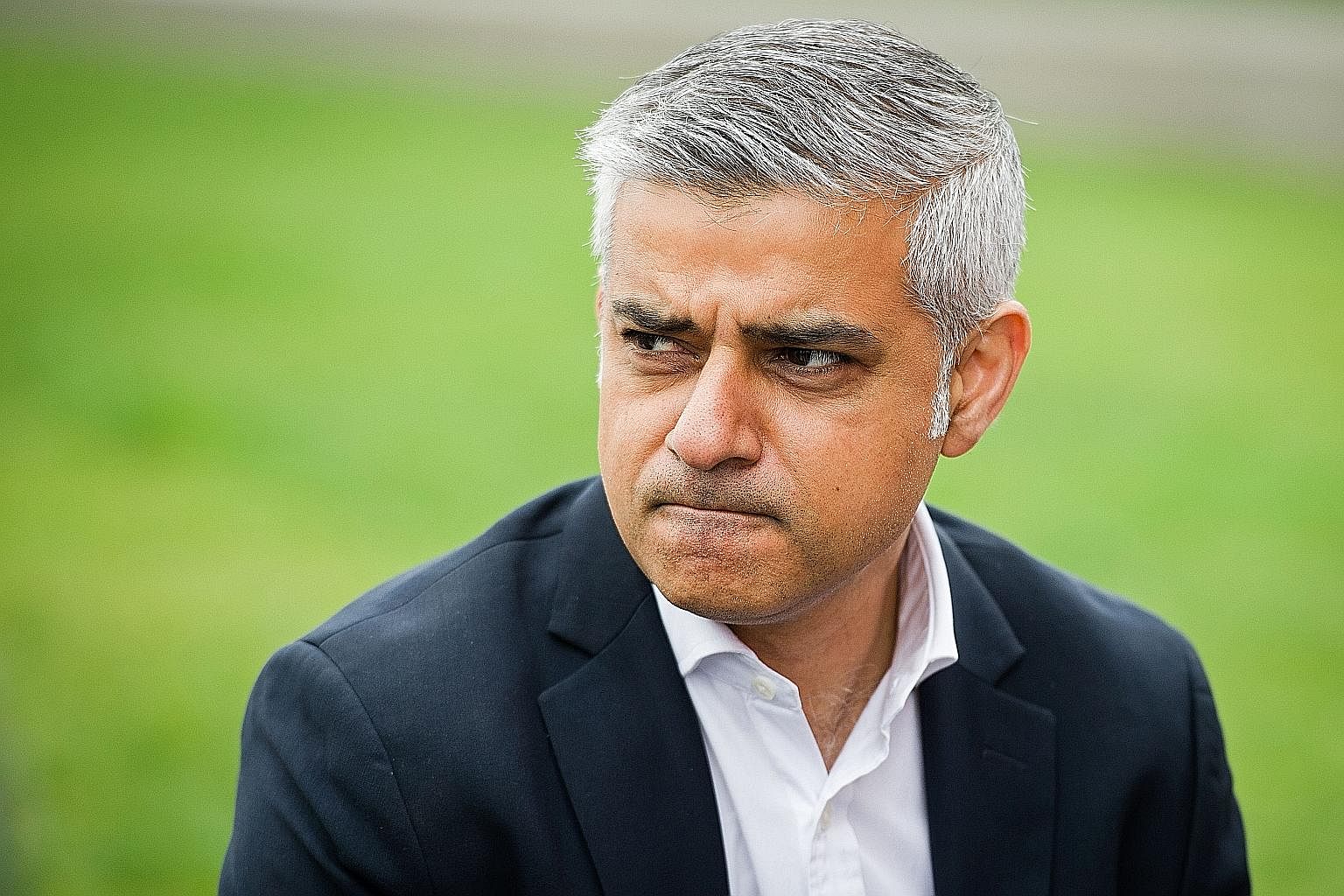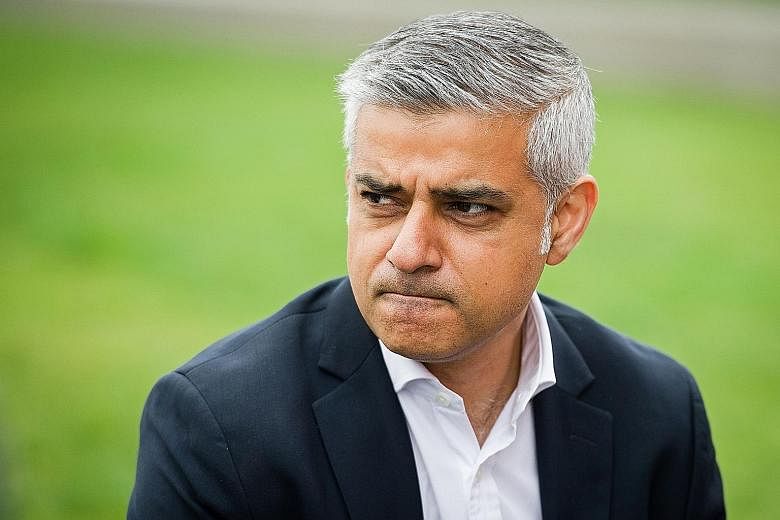London's new mayor has proposed giving the city's residents first option in buying newly built homes as he warned against transforming the British capital into the world's centre for "money laundering", where foreigners more often buy properties for investment than as residences.
Mr Sadiq Khan, who took office last month, used his first formal press conference to suggest that property developers might be required to market newly built homes to local residents for "at least six months" before offering them to foreign buyers.
"We should not be embarrassed about saying 'our homes are homes', not gold bricks for investors in the Middle East and Asia," he said.
But although his appeal resonates with hard-pressed Londoners looking for affordable homes, little of what Mr Khan proposes to do addresses the fundamental reasons behind the acute housing shortage.
For much of the past century, London's population was in decline. Once the world's largest city, London peaked at 8.6 million inhabitants in 1939, but dwindled to 6.6 million by the 1980s. Largely due to immigration and broader economic pressures, that trend has been reversed. The city is projected to have 10 million inhabitants a decade from now and, if current trends continue, could reach 13 million by the end of this century.
Meeting the demand for housing requires, according to the city's own planners, the construction of 50,000 new homes each year. But only half that amount is being built, and the results are predictable: The average London house price has just passed £600,000 (S$1.2 million), well beyond the reach of most locals. Renting is not much of an option either. The monthly rent for the smallest flat in the city centre now exceeds £1,400.

Since Britain is unique in imposing no restrictions on purchases by foreigners, London's property market is now the playground for all the world's investors, attracted to fast returns on their capital, with virtually zero risk. Some homes are being bought by foreigners for rental purposes, so they do boost London's housing stock. But others - and particularly at the top end of the market - are simply being left empty because their foreign owners do not need the rental income, yet do want to have the flexibility of selling quickly.
Foreign buyers regularly account for 20 per cent of all sales in Kensington and Chelsea, one of London's most expensive residential areas, according to statistics compiled by Britain's Department for Business.
For new properties going up in the city, however, the figure is about 75 per cent, and according to real estate company Savills, two-thirds of these foreign buyers are investors with no intention to occupy their properties. To make matters murkier still, it is almost impossible to know who the real owners are, since many are owned by shell companies.
Even if developers were to discriminate in favour of local buyers, new properties remain unaffordable. The average asking price for a smallish flat in Knightsbridge, the preferred area for developers, is around £3.5 million. What London needs is plenty of affordable housing, selling for no more than £300,000 a unit.
The appointment of Mr James Murray, a local councillor famous for his strict approach to property developers, as the London mayor's new housing chief is intended to achieve that. The snag is that the local authorities in Britain have few powers to force developers into low-cost housing projects.
And London has little space for such developments, unless the British government is prepared to free green land around the city for new construction. Yet that is something that Prime Minister David Cameron's administration will not touch, partly because it will prompt an outcry from environmentalists, and partly because it will depress existing housing prices, a guaranteed method of losing votes in elections.
So the temptation to blame foreign property owners for the city's problems remains irresistible, even if that does little to halt London's property price spiral.

